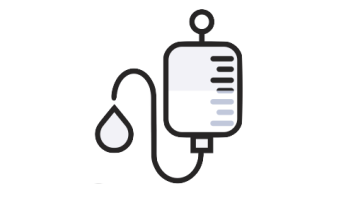
Adding Nivolumab to Usual Treatment for People with Advanced Stomach or Esophageal Cancer
What is the purpose of this clinical trial?
This study tests treatment for people who have already received initial treatment for advanced stomach (gastric) or esophageal cancer.
When further treatment is needed, the next treatment is usually 2 drugs, paclitaxel and ramucirumab.
In this study, doctors will test adding a drug called nivolumab to the usual treatment. They will compare the new combination of drugs to the usual treatment.
Nivolumab is a type of immunotherapy drug called an immune checkpoint inhibitor. It helps the body’s immune system fight cancer by blocking a protein called PD-1.
This trial is set up to find out:
- If adding nivolumab to the usual treatment lowers the chance of the cancer getting worse or spreading
- If adding nivolumab to the usual treatment helps people with advanced stomach or esophageal cancer live longer
- What side effects people have from each of the study treatments
- How each of the study treatments affects patients’ quality of life
Why is this trial important?
Recent research has shown that patients with advanced stomach or esophageal cancer benefit when their initial treatment uses immunotherapy drugs that block the PD-1 protein. But doctors don’t know yet if this type of immunotherapy should also be part of later treatments for these cancers. This study is a chance to learn if the same immunotherapy approach can improve further treatment options for patients.
Who can be in this trial?
This trial is for adults, age 18 or older, who have stomach or esophageal adenocarcinoma that cannot be removed with surgery or has spread to other places in the body.
This trial may be for people who:
- Received standard chemotherapy plus immunotherapy for initial treatment
- Had initial treatment that didn’t work, stopped working, or caused side effects that were too severe to complete treatment
This trial is not for people who:
- Already received further drug treatment after initial treatment
- Had serious side effects from immunotherapy
- Have signs or symptoms of disease that make it hard to do many daily activities (for example, if your symptoms often keep you in bed, the study may not be right for you.)
- Are pregnant
What treatments will I get?
A computer will randomly assign you to one of 2 groups.
|
Group 1: Usual treatment + study drug paclitaxel and ramucirumab |
Group 2: Usual treatment paclitaxel and ramucirumab |
Your doctor will not have control over which group you will be assigned to. This helps make sure the study results are fair and reliable.
How long will I be in the trial?
You will be in the study for 3 years. Your study doctor will closely watch you for side effects and watch how the cancer responds to the treatment. You will also be asked to fill out short surveys about your quality of life during treatment. You may continue treatment until it stops working or you have side effects that are too severe. You may choose to stop treatment at any time for any reason.
If you stop getting treatment, you will have follow-up clinic visits or phone calls with the study team until 3 years after you started the study.
Are there costs? Will I get paid?
The drug nivolumab is provided free in the study.
Ask your health care provider and insurance provider about what costs will and won’t be covered in this study. You will not be paid for joining the study.
Where can I find more information about this trial?
Talk with your health care provider
Call the National Cancer Institute at 1-800-4-CANCER
Go to www.ClinicalTrials.gov and search the national clinical trial number: NCT06203600
For a list of trial locations, visit swog.org/NCI-S2303

